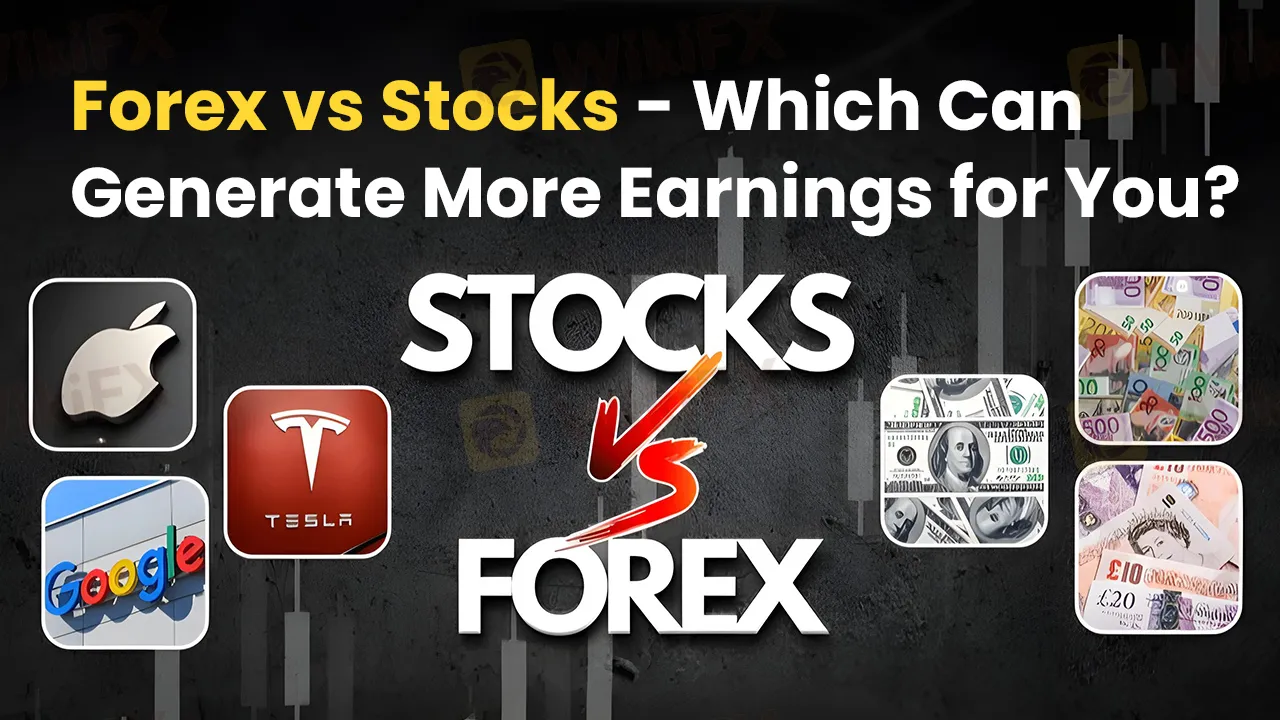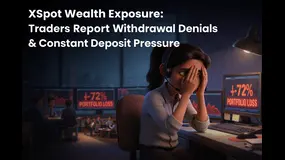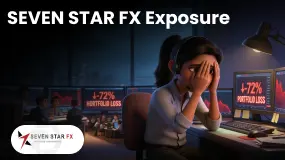WikiFX Spring Festival Message | Grounded in Transparency, Walking with Trust
As the Lunar New Year approaches, renewal is in the air. It is a moment to bid farewell to the old, welcome the new, and reflect while moving forward.
简体中文
繁體中文
English
Pусский
日本語
ภาษาไทย
Tiếng Việt
Bahasa Indonesia
Español
हिन्दी
Filippiiniläinen
Français
Deutsch
Português
Türkçe
한국어
العربية
Abstract:When looking to build wealth at a faster pace, stocks and forex emerge as two powerful alternatives. But which holds more profit potential? Which of the two is riskier? Find out the answers here.

When looking to build wealth at a faster pace, stocks and forex emerge as two powerful alternatives. While both have the potential to create enormous wealth over time, market fluctuations across these can make you shine or lose all your wealth. Choosing the right instrument is thus vital to navigate the market successfully and earn impressive wealth over time. But the question everyone‘s asking - who earns more profit? It depends on the market dynamics, risk, and the strategy employed by investors. We will approach this seemingly complex issue with an easy-to-understand guide. Let’s know each of the two - forex vs stocks - before comparing them based on various crucial aspects.
Forex trading is selling one currency to buy another currency in the foreign exchange market. In other words, it‘s about trading in foreign currencies, which remains active and buoyant on a daily basis. The average trading volume across forex markets has been above $6 trillion. Purchase and sale of currency pairs remain on for 24 hours and five days across a week, regardless of the traders’ location. Traders use the advanced MetaTrader 4 and MetaTrader 5 software to trade in foreign currencies. Using the software, they can access market data, automated trading options, and charting tools in real time.
Stock trading involves the purchase and sale of equity share capital through stock exchanges such as the Bombay Stock Exchange (BSE) and the National Stock Exchange (NSE) if you talk about the Indian market. With every stock purchase, you gain ownership of a company that issues shares to the public.
In the ongoing debate between forex vs stocks for a better option, we have listed various parameters. Lets start comparing these two to check which scores more points on these parameters.
Forex trading receives an enormous profit boost owing to the leverage facility. It allows forex traders to gain enhanced control over market positions with less capital. The leverage ratio can go as steep as 100:1. Using leverage can raise returns on short equity trades. However, it can also incur losses in the absence of adequate risk management. As the forex market can go both upward or downward, it widens the potential of making more gains than a loss, especially amid a highly volatile market environment.
Stock trading, on the other hand, also has its own profit potential. You may not receive much leverage here that you have with foreign currency trading. However, choosing the stocks of high-growth companies can raise your invested capital substantially over time. Holding long positions in stocks is recommended to make the most of a growing economy and market innovation. Short-term stock investments can offer high returns. However, the risk involved here is much higher. Accumulating your goal amount through stock trading sounds feasible over the long term.
The foreign exchange market combines a network of banks, brokers and other financial institutions. This ensures enhanced liquidity and efficiency in the foreign exchange market. The market also offers convenience to traders as far as taking positions regarding political or economic events is concerned.
Stock markets, on the other hand, remain open during specific hours. For instance, BSE remains open from 9.15 a.m. to 3.30 p.m. Indian Standard Time (IST). Despite extended trading hours, traders witness less liquidity and greater market volatility. Someone new to trading may find stock markets challenging. However, the centralized framework of the stock market makes it more regulated than the forex market.
The forex market is highly liquid when you trade in the most-sought-after currency pairs such as EUR/USD, GBP/USD, INR/USD and JPY/USD. The excess liquidity can cause intense market fluctuations for forex traders. Stock markets, on the other hand, witness relatively less volatility as the stock price is dependent on the companys performance, earnings, economic reports, and broader market movement.
Conclusion
The Forex vs Stocks debate will go on. Its important to know the circumstances under which these operate and how they react to different market developments. Making an informed choice between the two will go a long way in accomplishing your investment goals.
For more interesting forex updates, download the WikiFX App today.

For more engrossing sessions on forex, join our WikiFX India community on Telegram.

Disclaimer:
The views in this article only represent the author's personal views, and do not constitute investment advice on this platform. This platform does not guarantee the accuracy, completeness and timeliness of the information in the article, and will not be liable for any loss caused by the use of or reliance on the information in the article.

As the Lunar New Year approaches, renewal is in the air. It is a moment to bid farewell to the old, welcome the new, and reflect while moving forward.

XSpot Wealth has found many negative comments from traders who have allegedly been deceived by the broker. Traders constantly accuse the broker of causing unnecessary withdrawal blocks and forcing them to continue depositing with it. Many user complaints emerged on WikiFX, a leading global forex regulation inquiry app. In this XSpot Wealth review article, we have investigated multiple complaints against the broker. Read on!

Did SEVEN STAR FX make unreasonable verification requests and block your forex trading account later? Did the broker prevent you from accessing fund withdrawals? Were you made to wait for a long time to receive a response from the broker’s customer support official? Have you had to seek legal assistance to recover your stuck funds? Well, these are some claims made by SEVEN STAR FX’s traders. In this SEVEN STAR FX review article, we have looked closely at the company’s operation, the list of complaints, and a take on its regulatory status. Keep reading to know the same.

When traders search for "Is ZarVista Safe or Scam," they want to know if their capital will be safe. Nice features and bonuses do not matter much if you can't trust the broker. This article skips the marketing talk and looks at real evidence about ZarVista's reputation. We want to examine actual user reviews, look into the many ZarVista Complaints, and check the broker's legal status to get a clear picture. The evidence we found shows serious warning signs and a pattern of major user problems, especially about the safety and access to funds. This report gives you the information you need to make a smart decision about this risky broker.
